Pro stint has Mustangs’ Sharma eyeing big things
Already an all-star player, Aryan Sharma has brought new insight to his final year with the Western Mustangs — thanks to his summer pro experience in the CEBL. And it may help the ‘Stangs achieve big things this season.
(Photo: Barry Field Photography)
* * *
He’s banged up after a busy year. There are surgeries awaiting him in the offseason. And he’s still feeling the impact of tearing his meniscus in the first game of the preseason.
But Aryan Sharma has a new approach to the game that has him seeing a bigger picture.
“This season, it’s just been like a grind physically, just trying to get through day by day,” said the Western Mustangs forward. “But there’s a way I want to go about things, which is exactly like how the pros I saw this summer went about it. Yes, right now, these are Band-Aid solutions, but I have things to accomplish. We have a good shot getting far this year.”
Already a motivated student, athlete, and community member, Sharma’s time in the professional ranks inspired something new inside him. What he saw last summer not only reshaped him as a player and person for this fall and winter, but it also gave him the confidence to spring into a future playing the game he loves.
* * *
Last season, Sharma drew national attention, averaging 23.4 points, 6.1 rebounds, and 2.0 assists across 22 games. He led the Mustangs in points and rebounds per game, scoring a career-high 37 points Oct. 13 against Laurentian. In Western’s abbreviated one-game playoff run, the 6-foot-5 forward scored 26 points and grabbed 11 rebounds.
That performance was enough to make Sharma the second-overall pick by the Montréal Alliance in the 2023 CEBL U SPORTS draft as a developmental player.
Last summer, he headed to Quebec to play his first games as a professional. To say those weeks opened his eyes for the first time would not be an insult to the sharp-shooter.
“In that professional setting, I saw how much more people put into their crafts than at the university level,” he explained. “In university, some people are happy to be part of the team, but it’s not what they want to do with their career. But when you get to the pro level, it’s competitive to a point where if you’re not killing it every day, you’re not putting food on the table, you’re not paying your bills.”
Sharma was among the youngest players on the Alliance, with some a decade older. While he has always prided himself in carrying himself professionally as a student and player, once immersed in the professional hoops culture, he realized how much more goes into it.
“There’s a whole new level of preparation, a different type of mindset, a different type of competitiveness. People’s livelihoods are at play.”
Among his early challenges as a pro – including a French language barrier among some teammates and coaches – Sharma also entered the season injured with a sports hernia. That limited his practice time, as well as put him in an awkward position as the new guy.
“Having all these expectations to go in – I was the second overall draft pick – and then being injured going into it, it resets your expectations. Instead of doing what you do, and showing your teammates what you can do, you have to start from ground zero.
He continued, “Honestly, the biggest thing was just patience for me. It was staying the course and taking emotions out of it. The only thing emotions would do at that point would be getting me more frustrated. I treated everything very, very matter of fact. These are the steps I need to take to get on the court, and then I systematically took them.”
Sharma watched all of training camp from the sidelines where he saw high-impact, high-intensity competition.
The big difference he noticed was how every player’s foundation was set. Everyone had skills. Everyone could ball.
Training camp was about the grind, learning the systems, getting in shape. Once the season started, however, practices were about fine tuning, taking care of bodies, minimizing impact, managing the load. For a young player used to all-out university practices as intense as a game, it was a big change.
(Photo: Barry Field Photography)
In Montreal, there was a head coach and seven assistant coaches. So, the amount of individual attention every player received was on a whole other level to the point where extra workouts and skill development outside of team practice was readily available.
Sharma finally found the court almost a quarter of the way into the season. Making his pro debut against the Scarborough Shooting Stars on June 11, he charted 4 points, 5 rebounds, and 1 assist over 38 minutes in five games.
“Honestly, it was tough. I missed all that time. When I got on the court, I was playing catchup. I went from having the best season of my career in U SPORTS to a point where I’ve missed all of training camp and part of the season.”
Without the training camp and practice reps, a return to the court was a big adjustment. Everything was faster, more physical. He felt like he was figuring it out on the floor.
Sharma was released by the team on July 2. Montreal finished a league-worst 7-13.
Forget what the scoresheet says – Sharma knows his game translates to the next level.
“The pro game is about efficiency, basically doing your job and focusing on just that. I feel like my game is predicated around efficiency. There’s not a lot of times where you see me take 10, 12 dribbles, wasting time. For me, it’s about sharp, sharp movements, efficient movements, getting to my spots, getting my shots up, in and like out of sets. I play really well out of a structure of an offense. That is translatable. I can fulfill the role that I have.”
Despite the discomfort of those early days, he now knows what he wants.
“Being in that setting and playing in those games, it gave me a lot more confidence to say that my goal is to play professionally full time. If I could still get on the court, having missed all of training camp, having no experience, and still compete, then the sky is the limit. It gave me confidence that I could play with anybody who played professionally.”
(Photo: Barry Field Photography)
* * *
Sharma has a notebook. Inside, you’ll find a list of names, teams, and goals written down on its pages. Some are crossed off. Others remain. Before every game, Sharma opens the notebook and checks his lists to see what’s next.
“Depending on who we play,” he explained, “I have a target in mind that I want to cross off as a form of motivation.”
This season, the fifth-year senior is averaging 18.0 points and 4.1 rebounds, piloting the Mustangs to a 7-2 record before the holiday break. He scored a season-high 29 points against the Windsor Lancers in a 96-71 win to close out the season’s first half on Dec. 2.
Western is ranked No. 5 in the nation, although behind OUA rivals Queen’s (No. 3) and Ottawa (No. 1).
The Aryan Sharma who has been leading this squad is a changed player thanks to his pro experience.
“The biggest thing I brought back was not on the court. I learned to treat every single thing I put into basketball as my job. Taking care of my body is tops, and treating it as my biggest asset is key. I am going about the game with the mindset that I’m playing to make a career out of it. Things that are on the line are bigger than just a regular game. I try to zoom out and see the bigger picture of what my goals are and how every aspect of what I do, what I eat, how I sleep, how I recover, how I practice, what types of movements I’m doing – I look at how all of that can maximize my longevity and performance.”
He continued, “I’m so much more mindful now. Having seen these guys who have been playing pro for like 10, 12 years, and how they approach it, I’ve tried to adopt a similar approach. That’s like the biggest difference coming back.”
Beyond his off-the-court mentality, his on-the-court demeanour has also changed.
“It’s made me a lot more fiery on the court. Those guys (in the CEBL) are killers. They’re going after it. They’re basically trying to go after everybody’s money, going after everybody’s food. That rubbed off on me to where now in practice or in games I’m on ‘go’ mode. I have always been fiery and competitive, but it’s gone to like a whole other level.”
Sharma signed with an agent earlier in the year, and they are looking at professional opportunities in Europe and elsewhere. But first, when the Western season ends, he’ll be taking care of his body – surgeries followed by rest and recovery. His goal? Being ready to play pro by summer.
“I am excited to try to find somewhere where I’m able to do what I do, to bring my skills to the court, but also be in a situation where I have an opportunity to grow and learn at a fast pace.”
Before that happens, however, Western has set itself up for a potentially special run in Sharma’s final season. The Mustangs return to action Jan. 5 against the Laurier Golden Hawks in Alumni Hall.
Sharma has already checked his notebook and knows full well Western hasn’t beaten the Golden Hawks since 2020. He wants that one bad.
“We got a special group of guys this year. We got guys who are hungry. We got guys who are willing to do their jobs. We got a real chance to make some noise,” he said. “The first half of the season gave us a lot of confidence that we can be one of the best teams in the country, as long as we stay true to ourselves and not get complacent. We’re ready to show that the first half wasn’t just a fluke.”





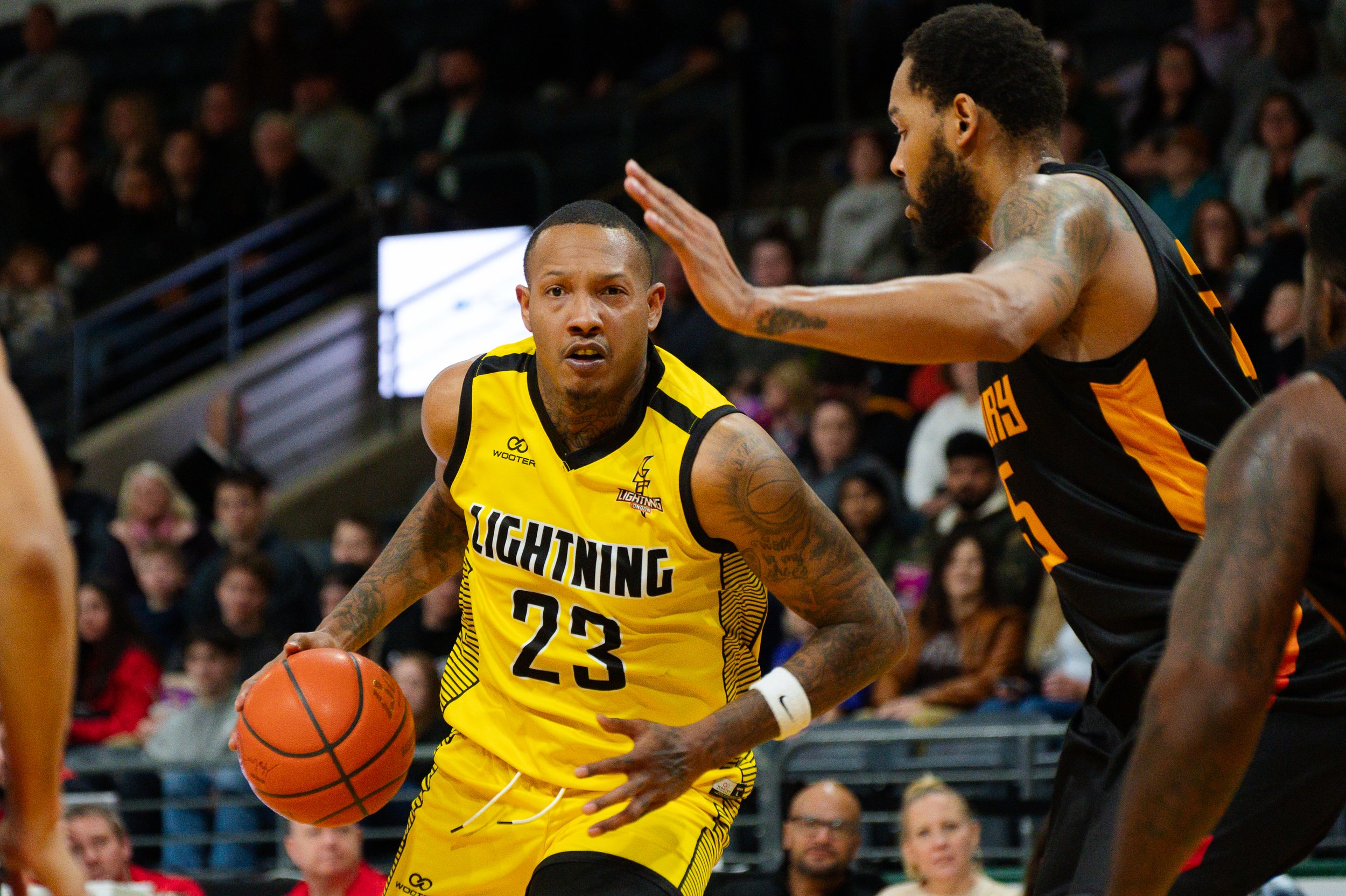
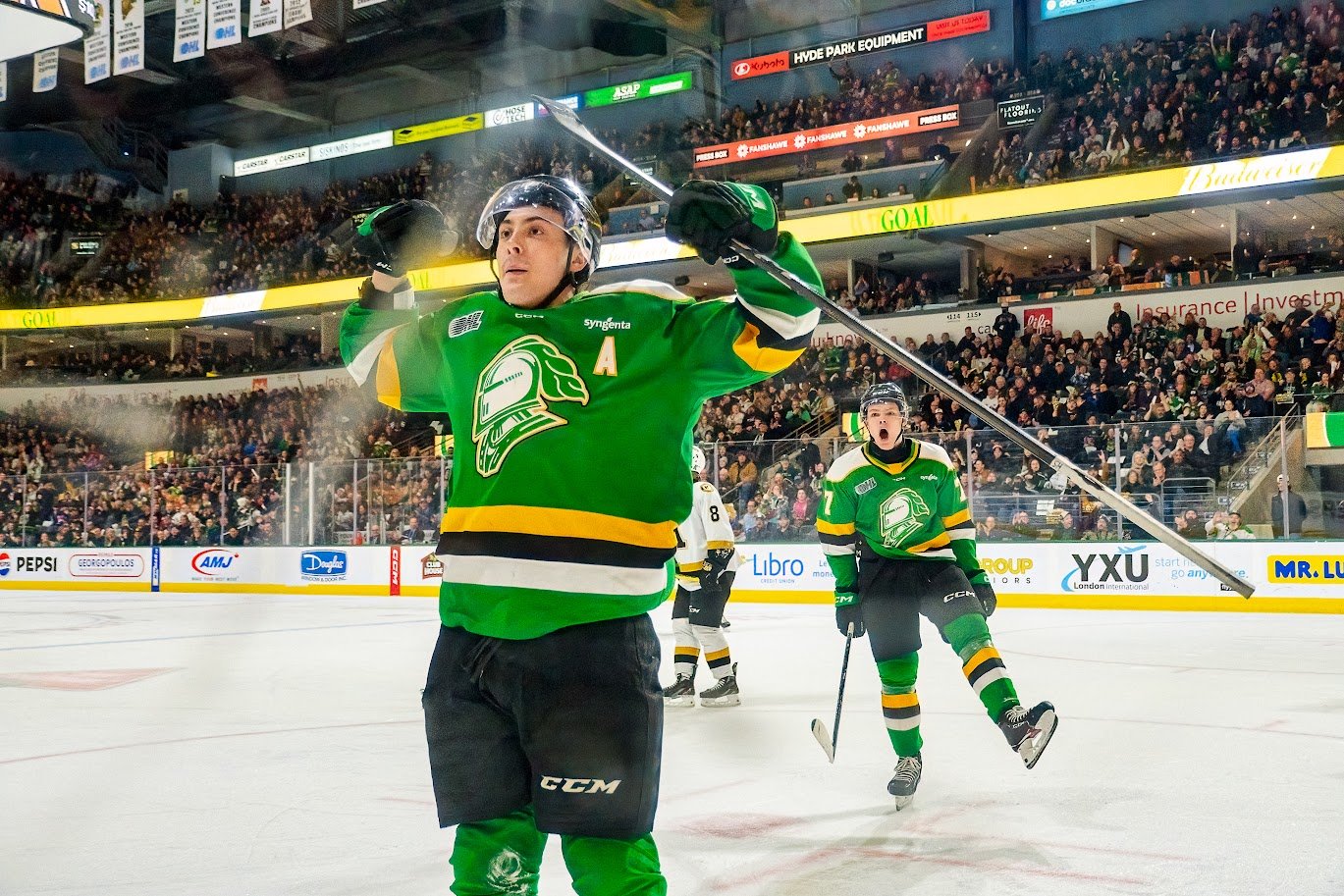
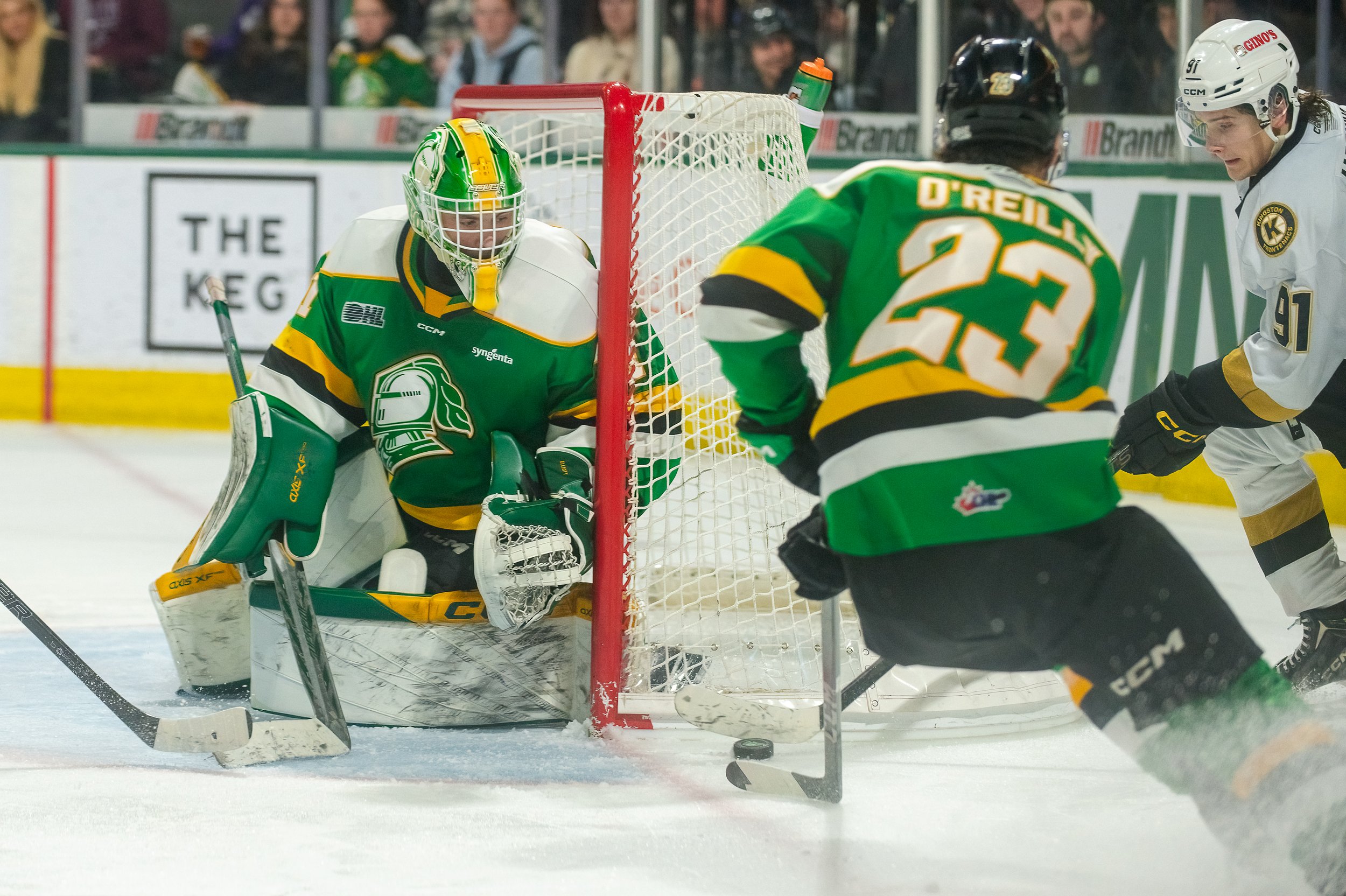
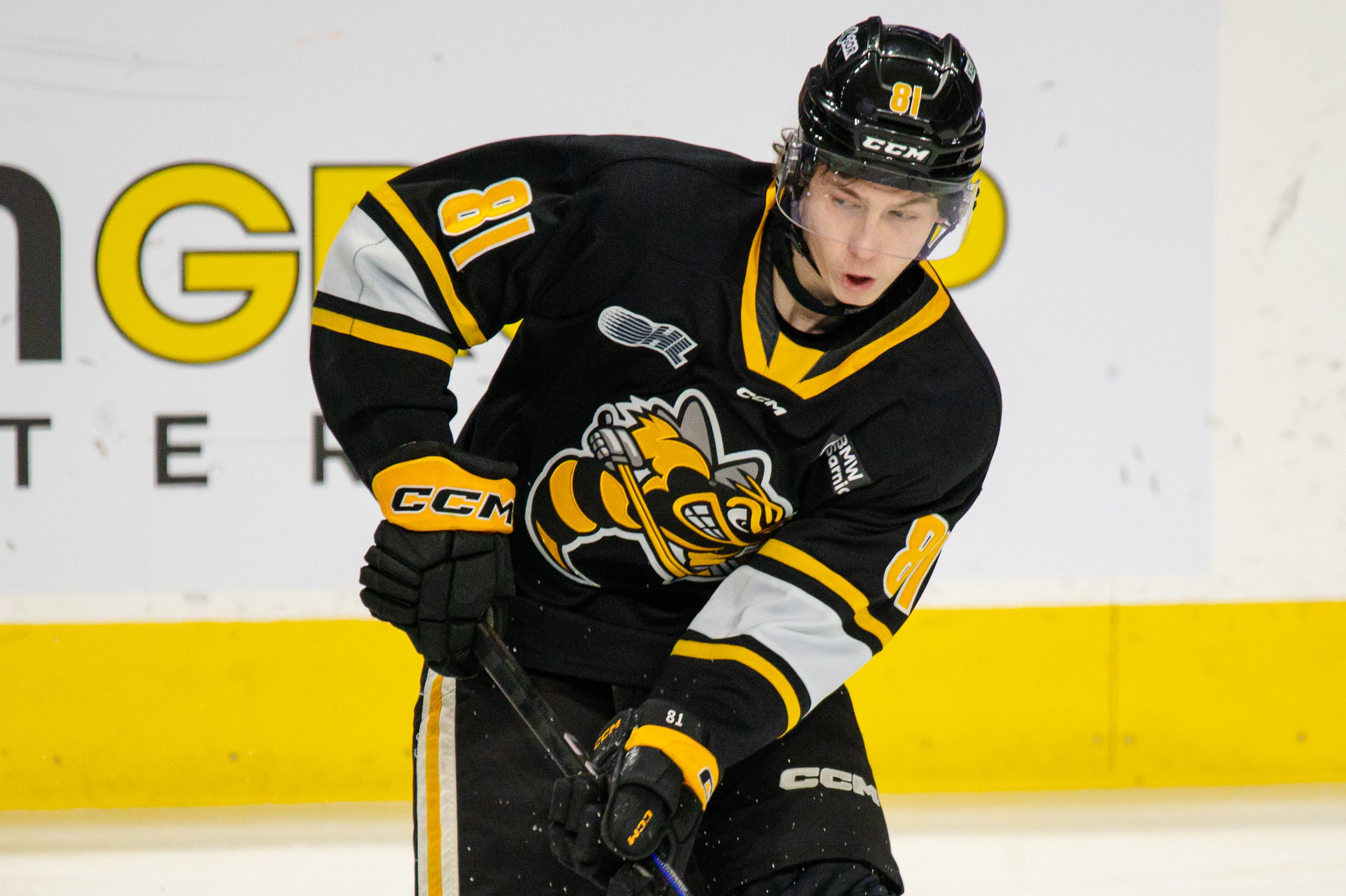

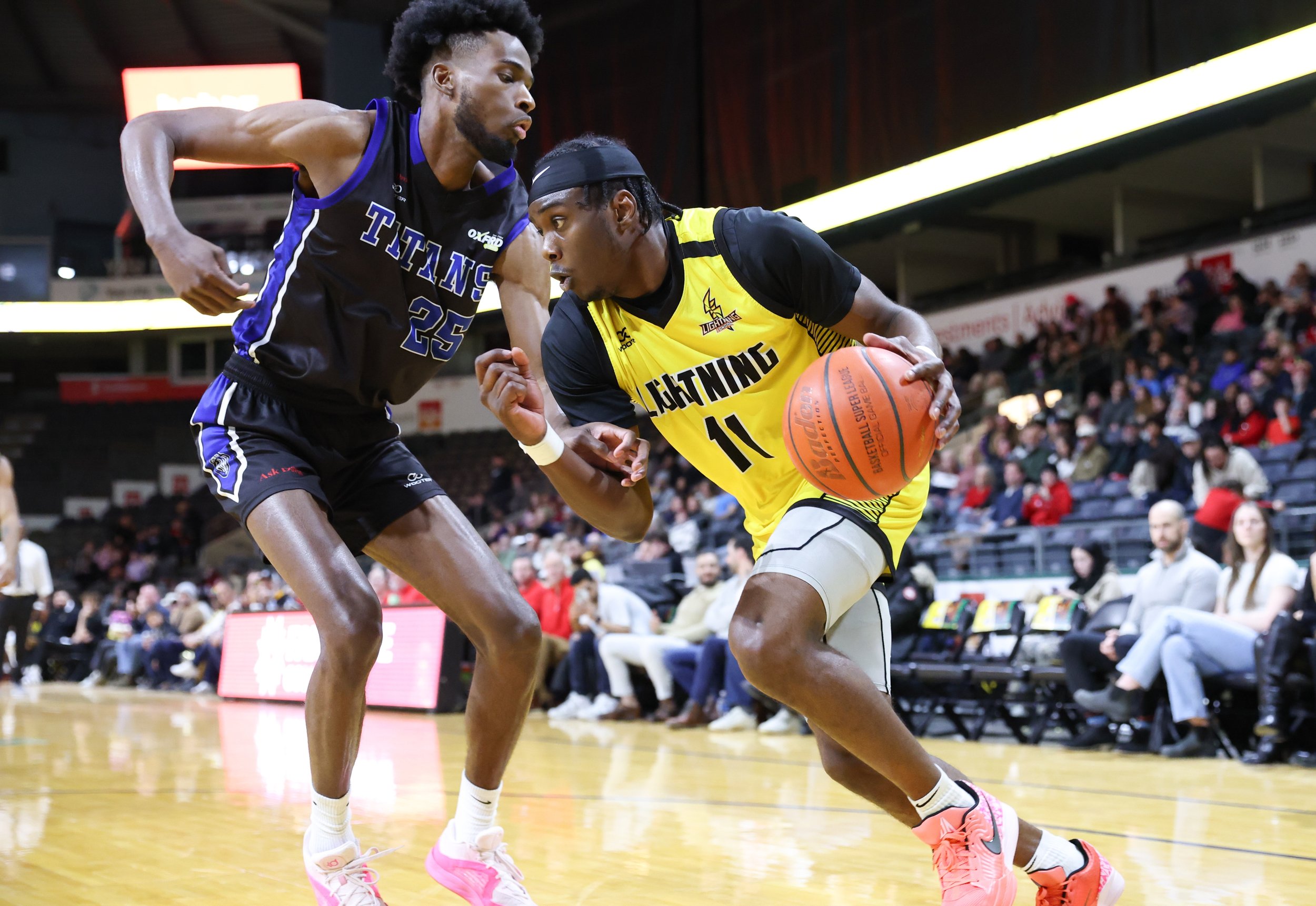


Around the Perimeter: London set for one-game playoff in New York. Winner moves on to semi; Coach Williams believes he’s found the right mix; Can Lightning conquer the Jackals’ den? …